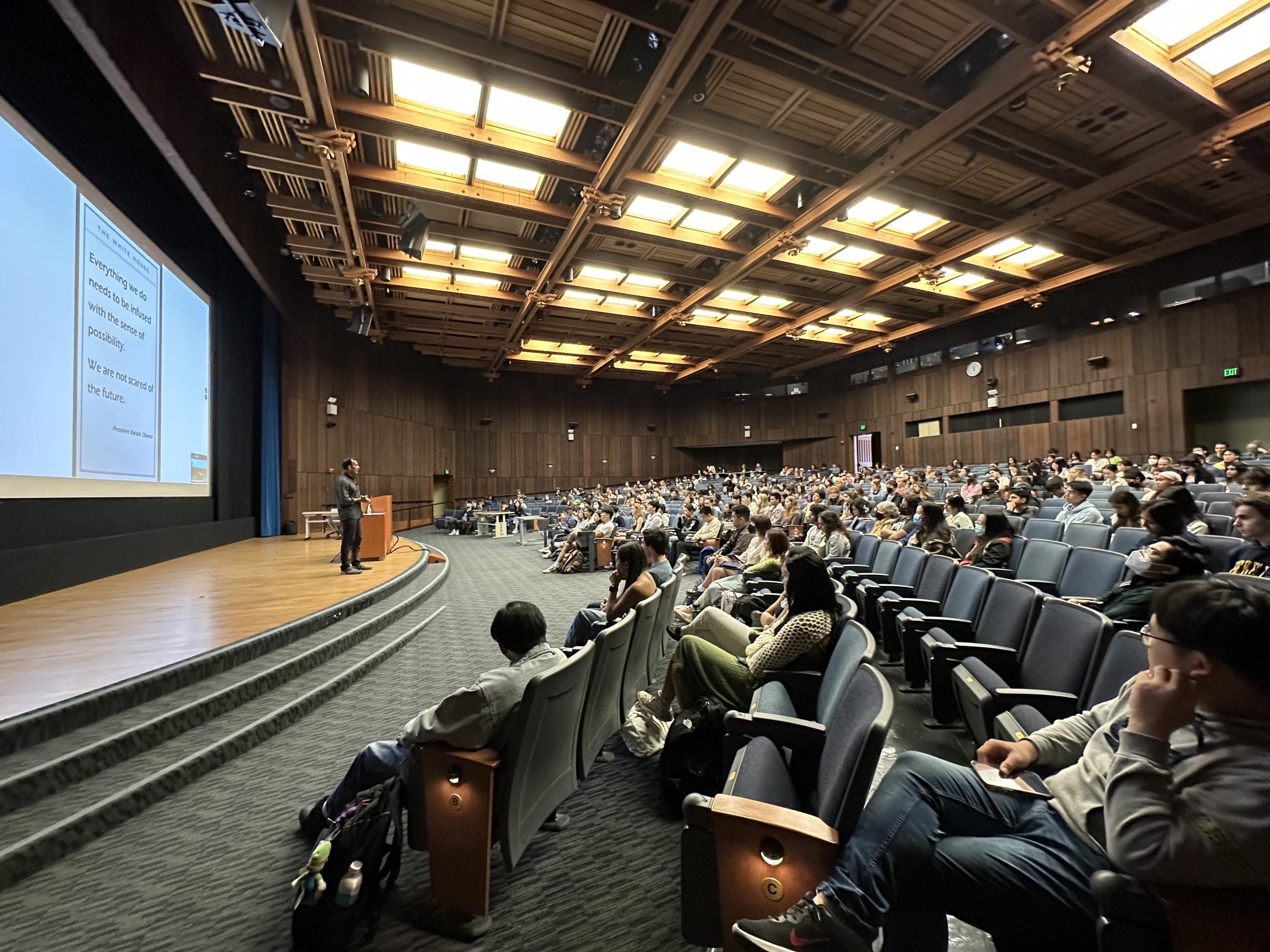
On March 14, 2020, the United States was on the brink of a pandemic. Covid-19 had killed at least 60 people and two cruise ships with ill passengers were set to dock in San Francisco. That’s when DJ Patil received a call: How can data help California combat this?
So the former White House chief data scientist put together a plan. His team acquired hospital and community data, developed surveys, models, dashboards and data catalogs, and used those tools and insights to inform public officials across the state and the country.
“All of this came together in this effort to really take on Covid,” said Patil, who is now a general partner at GreatPoint Ventures, at an April 10 UC Berkeley lecture on the foundations of data science. “Data science made a massive impact in – not just the nation – but the world.”
Covid-19 is just one example of how data scientists are using data to improve the lives and safety of the public, Patil said. They are becoming “a new kind of first responder,” whether that crisis is a deadly virus or a flash flood, and they’re unlocking new ways to broach longstanding challenges like searching for a cure for cancer.
“With data science, you all have one of the most powerful tools that you can have to take on the hardest problems in the world,” Patil, an advisory board member for Berkeley’s Division of Computing, Data Science, and Society, said to the Berkeley students. “What we need is for all of you to fundamentally change the world – to make it better for our kids and our kids’ kids.”
Patil urged students to remember that data points often represent people. To use their data respectfully and effectively, scientists must talk to them, learn their stories and understand their context, he said.
Data scientists should be ready to do the “unsexy” detail-oriented work, like putting together data catalogs and working as a team, Patil said. They should also think through not just whether it’s possible to tackle something using data science, but whether it’s ethical.
Finally, Patil reminded students to use the power and privilege of their data science skills wisely, ensuring that the technology they develop works for the public. And students should always think big and persist when identifying problems to solve and working to address them.
“It's easy to become a cynic,” said Patil, closing his talk by sharing advice from former President Barack Obama. “Everything we do needs to be infused with a sense of possibility. We are not scared of the future."
